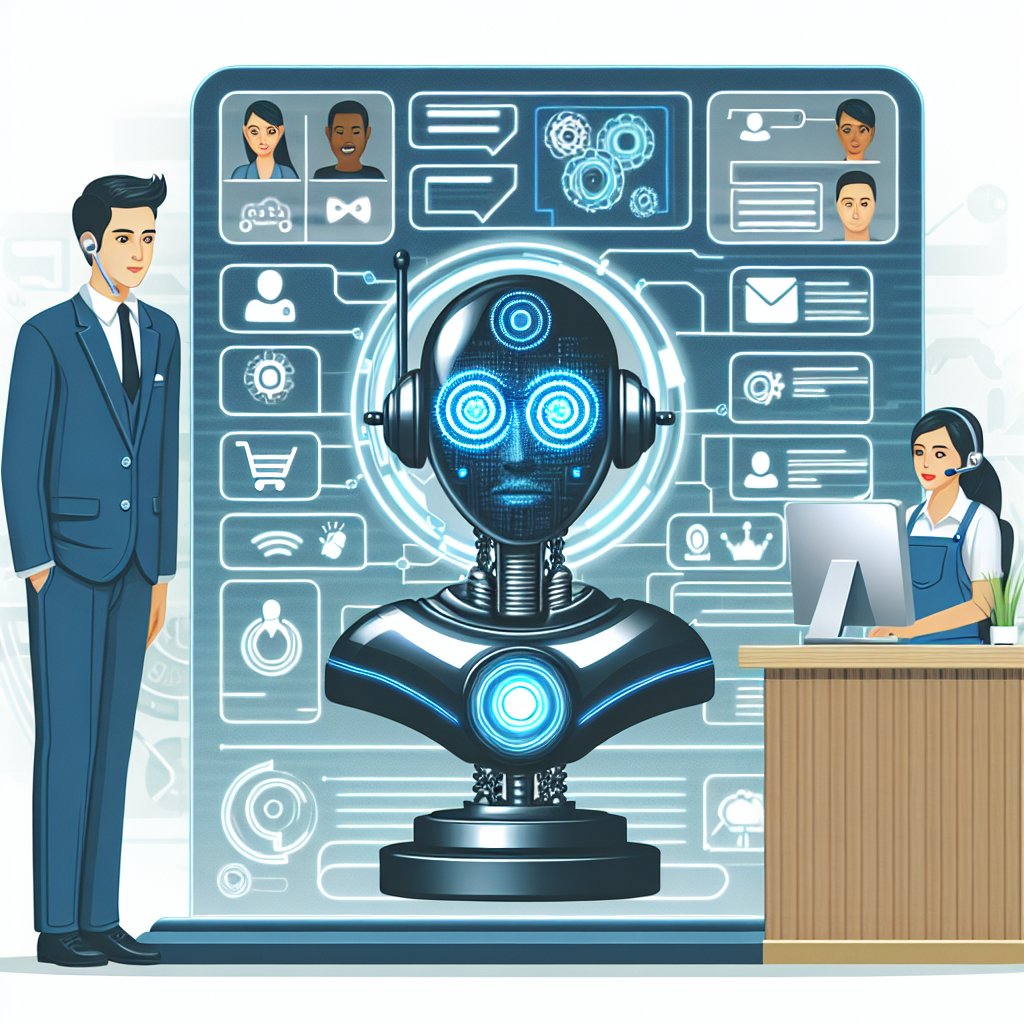As technology continues to evolve, the question of whether AI will replace customer service looms large, garnering immense interest from various sectors. Incorporating AI into customer service has the potential to streamline processes, provide rapid responses, and offer personalized assistance, thus revolutionizing the way companies interact with their customers. While AI is adept at handling routine tasks, the nuanced understanding and emotional intelligence of human agents remain irreplaceable for more complex issues. The future of customer service with AI foresees a hybrid model where artificial intelligence supports and enhances the capabilities of human agents, ensuring efficiency without losing the personal touch that customers value.
Use of AI for Customer Service
The integration of Artificial Intelligence (AI) into customer service is revolutionizing the way businesses interact with their clients. AI enables companies to automate and enhance various aspects of customer support, leading to improved customer satisfaction and operational efficiency. By deploying AI technologies such as chatbots and virtual assistants, customer service teams are able to provide instant assistance around the clock. This not only shortens wait times for consumers but also allows service agents to focus on more complex inquiries that require human expertise. Moreover, AI-powered systems can learn from interactions to offer personalized support and predict customer needs before they even arise, fostering a proactive customer service approach.
The Potential for AI to Replace Customer Service
The landscape of customer service is rapidly evolving with the advent of artificial intelligence (AI). Businesses are increasingly turning to AI-driven solutions to improve customer interactions and streamline service operations. AI applications in customer service not only offer round-the-clock assistance but also deliver instant, personalized responses that can significantly enhance the customer experience. Innovations such as chatbots, intelligent virtual assistants, and AI-powered CRM systems are transforming how companies engage with their clients, providing efficient service at reduced operational costs. The ability of AI to analyze vast amounts of data in real time allows for a more insightful understanding of customer needs and behavior, paving the way for more strategic customer service decisions.
How Can AI Enhance Personalization in Customer Service?
Artificial intelligence (AI) is revolutionizing the customer service industry by offering unprecedented personalization capabilities. At its core, AI leverages machine learning and data analysis to understand individual customer preferences, behaviors, and previous interactions. This allows businesses to tailor their customer service to each unique individual, providing a customized experience that can significantly enhance satisfaction and loyalty. Moreover, AI-driven personalization engines can dynamically adjust recommendations and responses in real-time, ensuring that the assistance provided is both relevant and timely, which is critical in today’s fast-paced and demanding consumer market.
The integration of AI into customer service not only elevates the user experience but also streamlines operations for businesses. Sophisticated algorithms are capable of sifting through massive volumes of data to identify patterns and insights that human agents might miss. Consequently, customer service teams can address issues more efficiently and anticipate needs before they become explicit, effectively reducing response times and improving resolution rates. The result is a more effective, efficient, and personalized customer service model that can adapt to the changing demands of consumers and keep businesses at the forefront of customer experience innovation.
What Are the Limitations of AI in Understanding Human Emotions?
Artificial intelligence (AI) has made significant strides in interpreting human behavior, but when it comes to grasping the complex tapestry of human emotions, AI faces distinct limitations. One of the most prominent challenges is the subjective nature of emotions themselves. Emotions are deeply personal and can vary widely from person to person. AI relies on algorithms and patterns, but the nuanced and often contradictory ways humans experience and express feelings can be difficult for AI to accurately decode. Factors such as context, culture, and individual differences play a crucial role in how emotions are manifested, making it challenging for AI to provide a universally accurate interpretation.
How Will AI in Customer Service Impact Employment Opportunities?
The advent of Artificial Intelligence (AI) in customer service is revolutionizing the way businesses interact with their customer base, offering unprecedented efficiency and personalization. AI technologies, like chatbots and AI-driven analytics, have started to handle routine inquiries and provide analytical insights into customer behavior, allowing human representatives to focus on more complex customer needs. As AI continues to evolve, it is set to enhance the customer service landscape by automating repetitive tasks, ensuring swift response times, and delivering a more tailored service experience. The deployment of AI in customer service does not simply streamline operations but also opens new horizons for employment as the demand for AI-savvy professionals grows.







